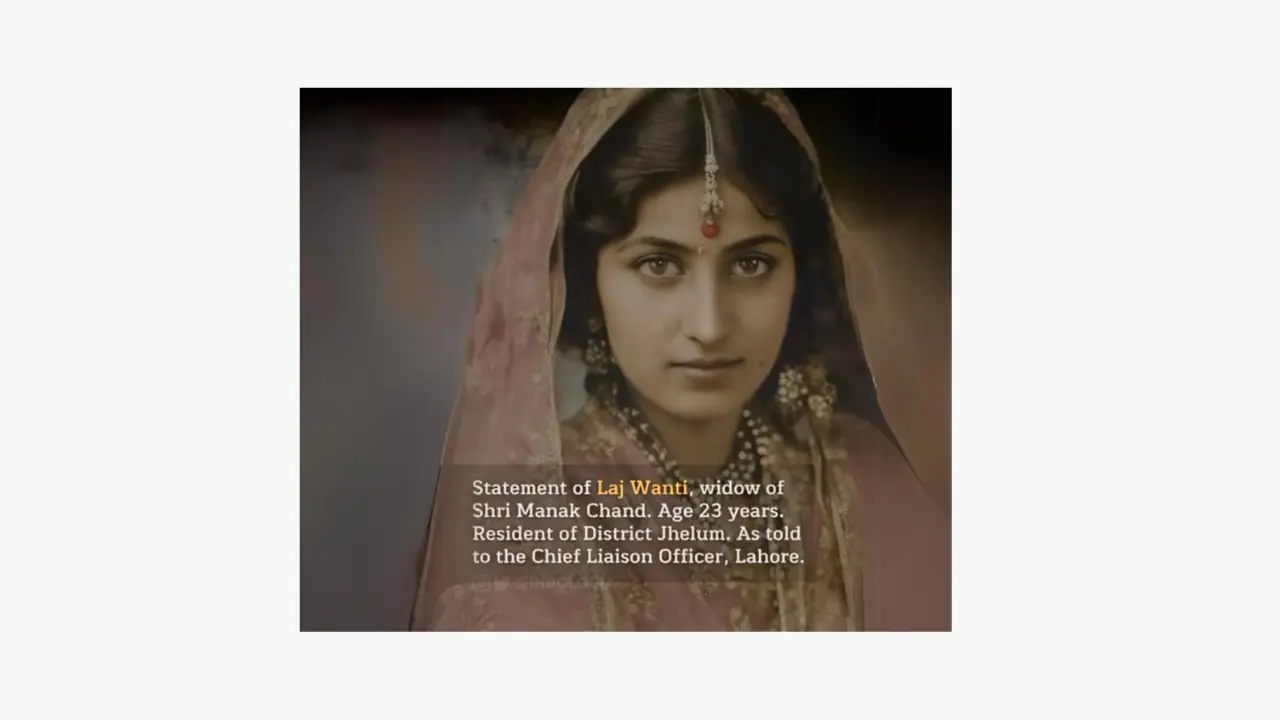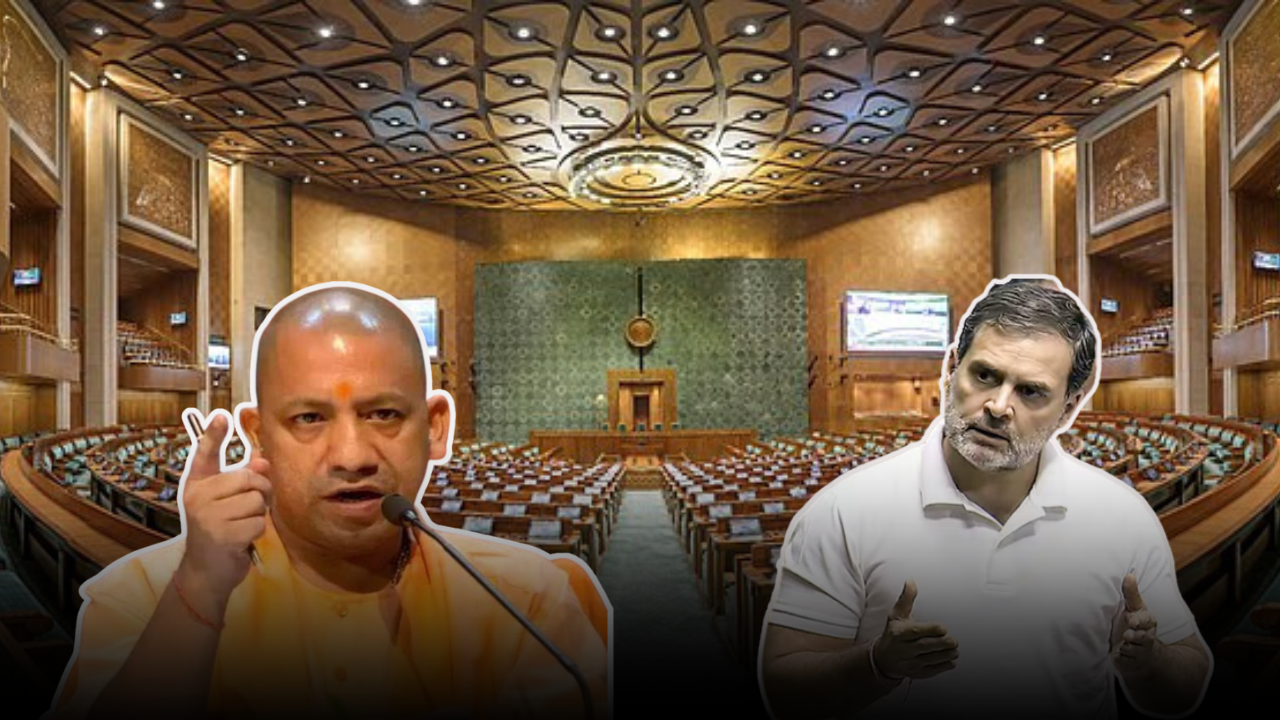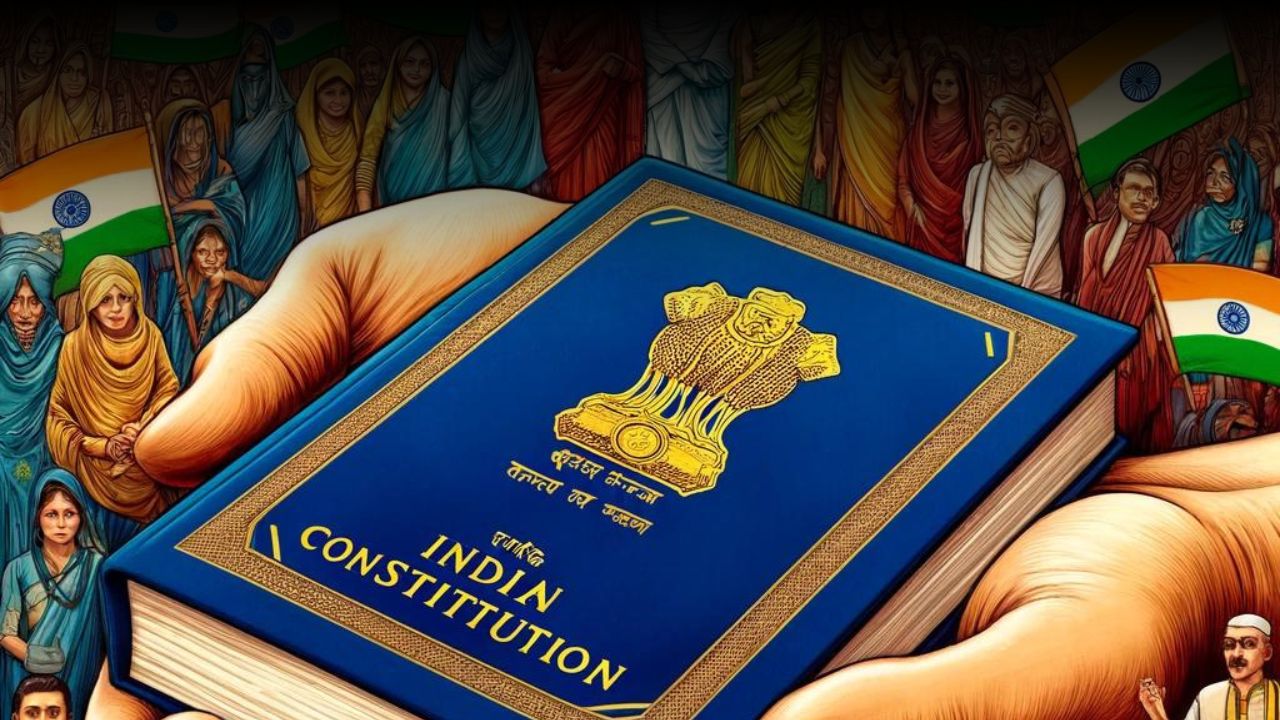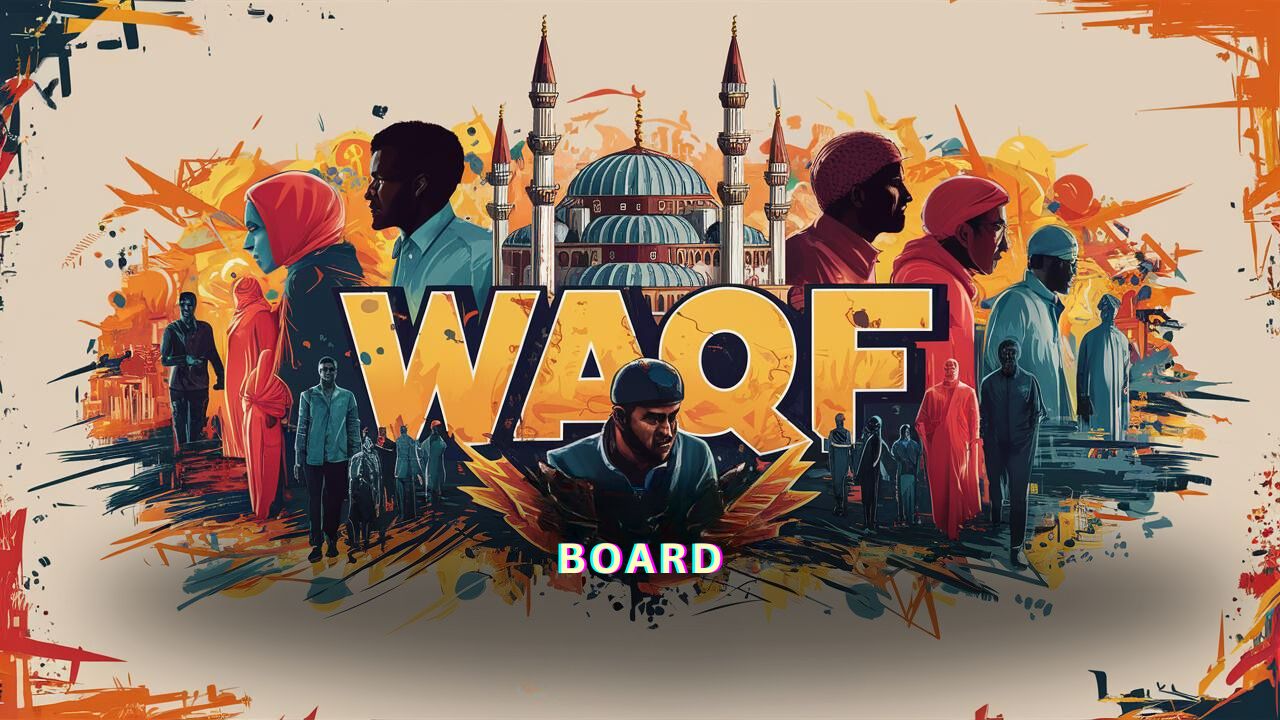Statement of Laj Wanti, Widow of Shri Manak Chand. Age 23 Years. Resident of District Jhelum. As told to the Chief Liaison Officer, Lahore “My husband, Shri Manak Chand, worked at Alkali Chemical Corporation of India Limited’s workshop in Kewra. We were living in the company’s attached quarters. A Muslim mob attacked Kewra towards the end of August 1947, resulting in the burning of a large number of houses.
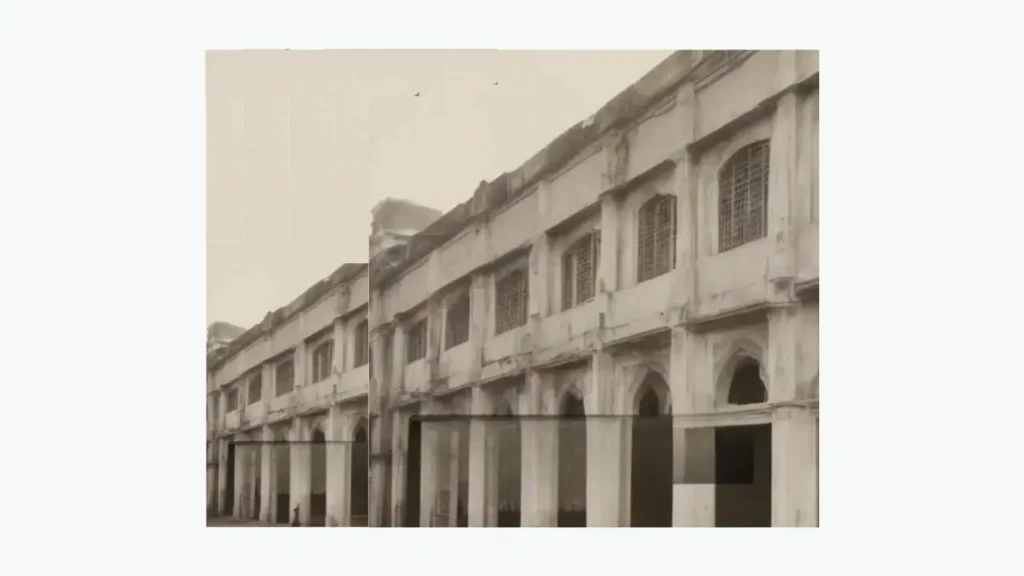
The European manager of the Alkali Chemical Corporation of India reported that there was no attack on the company’s premises, and the employees and their living quarters were unharmed. The manager, however, asked all Hindu employees to get ready for evacuation. Beginning in September 1947, Hindu employees left Kewra by truck.
Six trucks were loaded. We all piled into one truck, including myself, my husband, my half-year-old son, my uncle, his wife, Karmawali, and their small daughter. We left Kewra at about 4 p.m. and reached Pind Dadan Khan at about 4.30 p.m. We found a large number of non-Muslims collected at the railway station. According to rumors, the train would be the last to leave Pakistan for refugees. Approximately 5,000 people had gathered to board the train. Between 600-700 of them were women. At 10 p.m., the train left Pind Dadan Khan. 15 Pakistan Army soldiers guarded the train. We were given railway tickets. The worker said that the train would go straight to Firozpur.
The passengers received no water along the route. The train didn’t even provide water where it stopped. The passengers were all Hindus, as reported. For the same reason, the passengers could not purchase any other provisions. The train reached Kamoke railway station at about 8 p.m. and stopped there for the whole of the night. At about 8 a.m. on Wednesday, the police came to the railway station and started searching the train.The passengers’ belongings underwent thorough inspection. The search even extended to the women’s personal items. The search continued for about two hours.
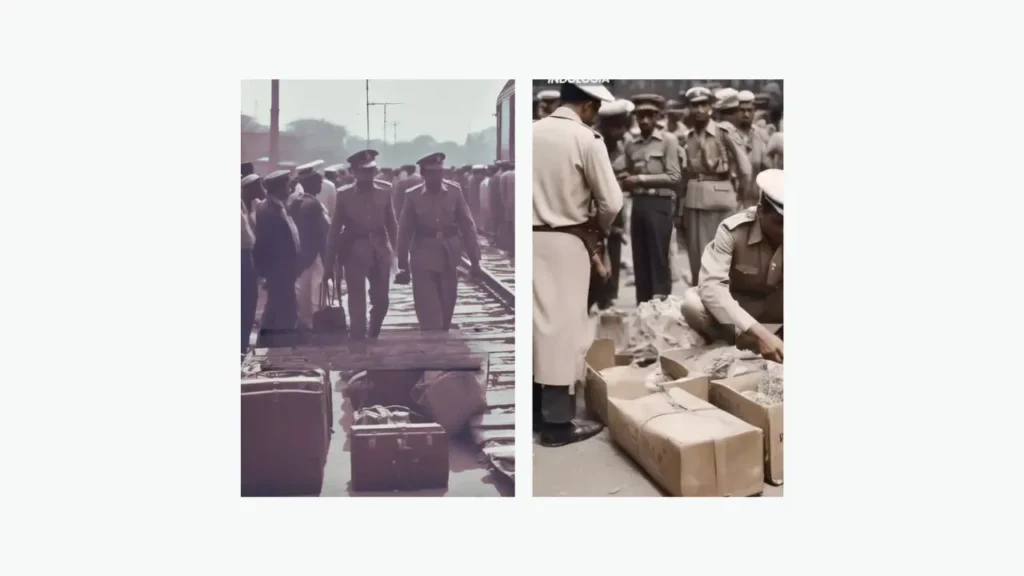
The police seized 97 guns and rifles. Despite only having a license for one weapon, the police confiscated Ten Knives from passengers. We assured all passengers that we would return the guns and rifles as soon as the train started.
Following the search, the authorities asked the passengers to board the train. Once everyone had boarded the train and the engine began to whistle, a large crowd of Muslims emerged from the side of the mandi and the factories. They were armed with rifles, churas, axes, barchas, and other lethal weapons.
They shouted “Ya Ali” and rushed forward. When they heard the sounds of the train’s cupboards, they began to brutally attack the passengers. The police force, including the sub-inspector and assistant sub-inspector, were present at the platform, and they also joined in shooting down the passengers who tried to come up to the train.
The Pakistani military simulated firing, but they aimed it at the sky rather than the mob. After a brief period, they also joined the mob and the police in firing at the passengers. The police shot dead those passengers who attempted to flee from the compartments towards the platform, while the Muslim mob slaughtered the military personnel and those who exited the compartments towards Naidal.
As a result, they shot or butchered most of the passengers. Afterwards, they rescued a few individuals who were initially considered dead due to their injuries. They did not slaughter the women, but instead removed and sorted them.
The mob removed and carried away all the women’s valuables. The mob even tore clothes in their attempt to remove valuables. Despite my protests, they smashed my son away.I do not know who took him. I was taken by Abdul Ghani guided me to his residence. He was from a Tonga tribe.
For more than a month, the house mistreated me. I went to other houses to look after my son. I saw a large number of children, but I was unable to find my son.
During these visits, I also saw a large number of Hindu women in the houses of the Muslim inhabitants of komoke. All of them expressed their dissatisfaction over the abductors’ harsh treatment. A month later, a drum beat signaled the arrival of the Hindu military, requesting all residents with Hindu women and children to surrender them to the police station.
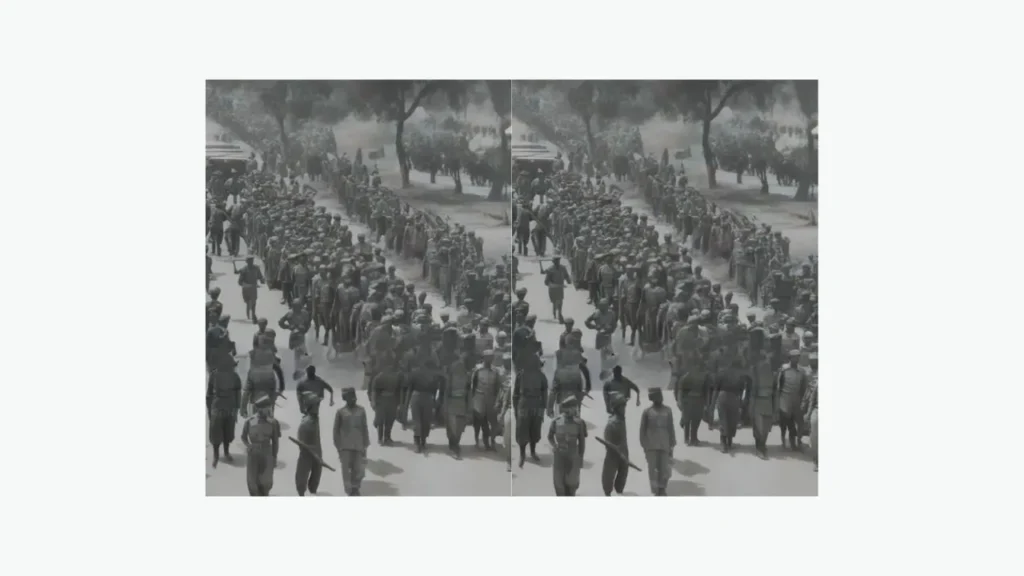
This account states that they brought me and approximately 150 other women to the police station. During my month-long stay, Abdul Ghani and his family insisted that there was no food in India, that all the Hindu women’s relatives had died, and that no one would take them back. Furthermore, they asserted that not even Mahatma Gandhi had said that Pakistani men or women should go back to India. The Indian military promised to bar foreign women from entering the country due to concerns about Hindu rejection.
While searching for my child, I spoke with every mother I came across and discovered that this propaganda was a regular sight in every Muslim home. Barkat Ali, a Muslim who had also abducted a young Hindu girl, boasted that he personally killed 50 men with his dagger and received a reward for his villa from Kamoke, a police sub-inspector. The police and other authorities ordered us to remain in their presence, and we expressed our unwillingness to return to India.
Tongas transported the 150 women from Kamoke station to Gujaratwala. Out of the connected women, only 20 got up and said that they wanted to return to India. I was one of them.
With these women, there were 10 children. A police sub-inspector loaded the remaining children into trucks and sent them back to Kamoke. The police then took us to Hindu refugee Camp, where they loaded us into trucks and transported us to Amritsar.
At Kamoke railway station, my uncle, my aunt, and my husband all lost their lives. I have yet to confirm whether my son and my uncle’s daughter perished in a similar manner.”


